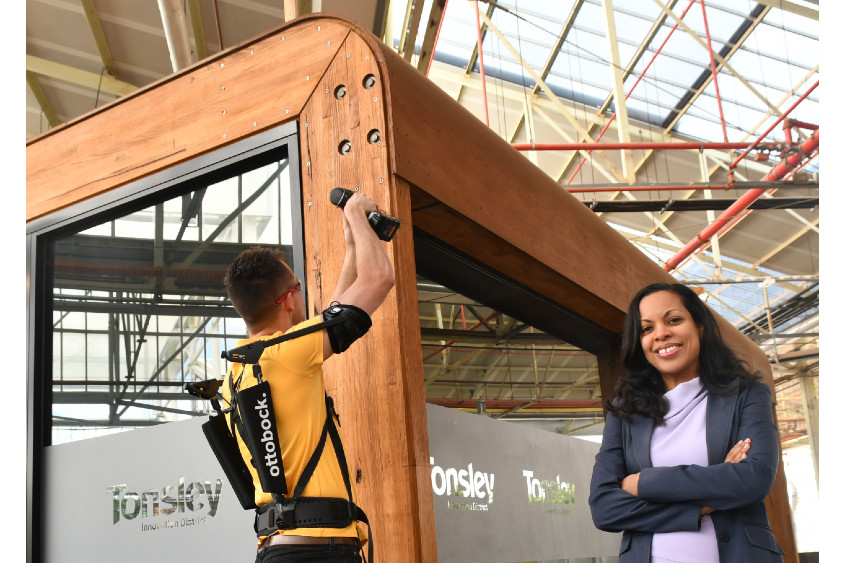Naval Group and Flinders University, located in Adelaide in Australia, commenced exciting research collaboration on the use of exoskeletons in shipbuilding in July, 2020 as part of its ground-breaking industry 4.0 partnership to bring world-leading advanced manufacturing capability to shipyards. This partnership comes within the context of the Naval Group Pacific Center of Excellence (CoE) with guidance from Naval Group’s Technical & Innovation department (DTI).
Under the partnership, Flinders University is conducting a series of research trials that will help support Naval Group’s digital shipyard vision by providing assistive manufacturing capabilities for improved safety, quality and productivity.
Exoskeletons help workers by reducing heavy lifting, strains and injuries. Some focus on the upper body, others on the lower body, and some even just on the hand.
Within shipbuilding, it may be possible to use exoskeletons in various contexts, for instance, in confined areas for overhead electrical work, welding and moulding.
The project has the potential to identify significant implications for broader industrial use for tradespeople, such as electricians and builders in other sectors such as construction, mining and manufacturing.
Industry 4.0 technologies such as exoskeletons are important in boosting advanced manufacturing capabilities in Australia and internationally in the COVID-19 economic recovery and beyond.
The multidisciplinary research team provides a holistic approach including quantitative and qualitative methods, physiological, biomedical, psychological, exercise science, usability, utility and performance impact effects related to exoskeleton use. The team includes Professor Giselle Rampersad, Dr David Hobbs, Robbie Trott, Armando Vozzo, Dr Kym Williams and Annabelle Chambers for Flinders and Bernard Boulle, Nolwenn Even, Margaret Law and Mathieu Issartel for Naval Group.
Importantly, the project uncovers human and regulatory dimensions in the introduction of new technologies from a worker’s perspective and also industrial regulations. The team composed by Naval Group and Flinders University feeds into discussions with international standardisation bodies such as the Association Française de Normalisation (AFNOR), which comprises key international stakeholders interested in the industrial use of exoskeletons to assist workers.
Future research can explore the longitudinal use of exoskeletons and also next generation exoskeletons with sensors and cybersecurity.
This leading industry 4.0 partnership is valuable in the manufacturing recovery to assist workers in a safe and sustained manner.


